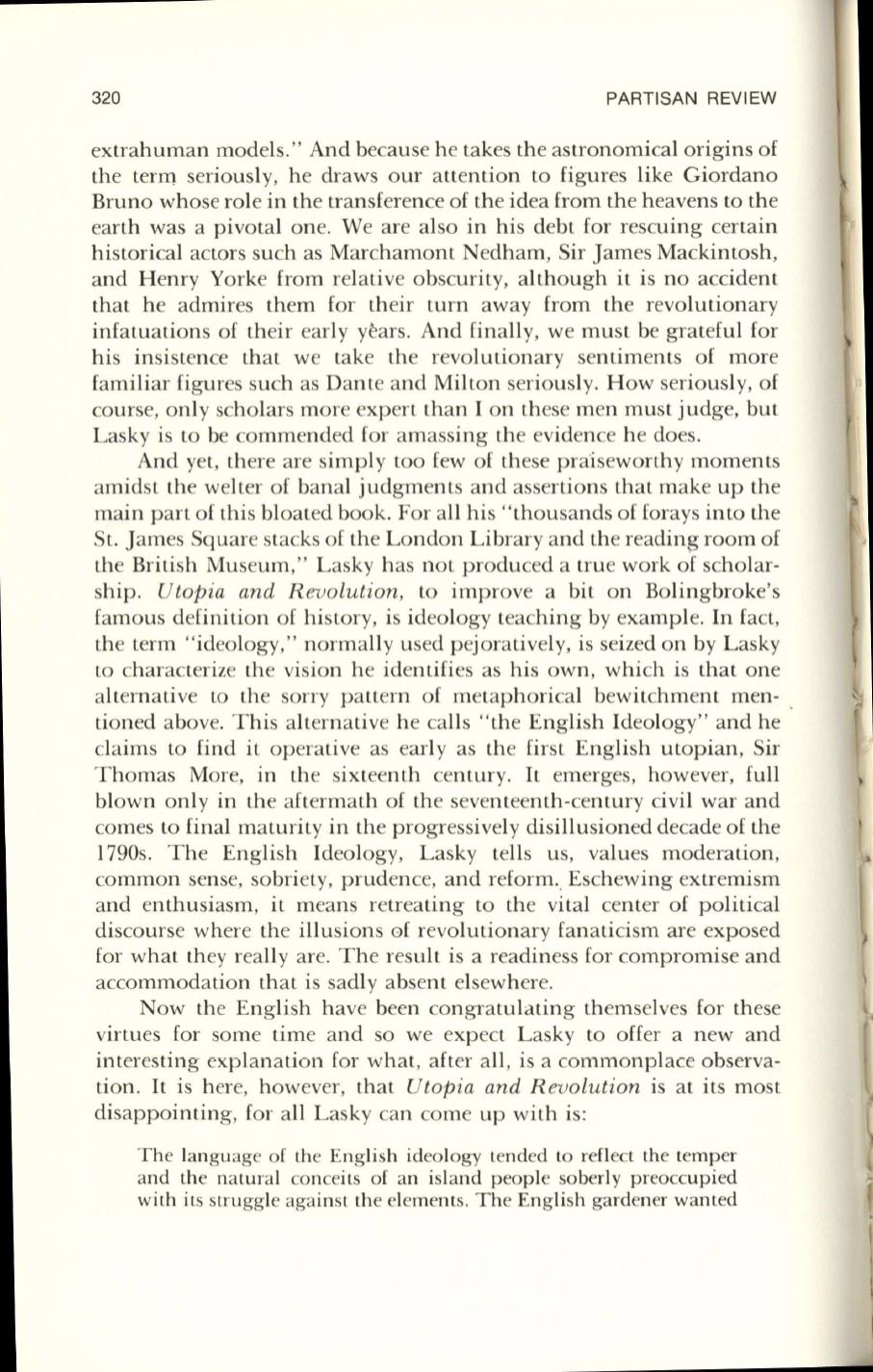
320
PARTISAN REVIEW
extrahuman models." And because he takes the astronomical origins of
the term seriously, he draws our attention to figures like Giordano
Bruno whose role in the transference of the idea from the heavens to the
earth was a pivotal one. We are also in his debt for rescuing certain
historical actors such as Marchamont Nedham, Sir James Mackintosh,
and Henry Yorke from relative obscurity, although it is no accident
that he admires them for their turn away from the revolutionary
infatuations of their early years. And finally, we must be grateful for
his insistence that we take the revolutionary sentiments of more
familiar figures such as Dante and Milton seriously. How seriously, of
course, only scholars more expert than I on these men must judge, but
Lasky is to be commended for amassing the evidence he does.
And yet, there are simply too few of these praiseworthy moments
amidst the welter of banal judgments and as ertions that make up the
main part of this bloated book. For all his "thousands of forays into the
St. James Square stacks of the London Library and the reading room of
the British Museum," Lasky has not produced a true work of scholar–
ship.
Utopia and Revolution,
to improve a bit on Bolingbroke's
famous definition of history, is ideology teaching by example. In fact,
the term "ideology," normally used pejoratively, is seized on by Lasky
to characterize the vision he identifies as his own, which is that one
alternative to the sorry pattern of metaphorical bewitchment men–
tioned above. This alternative he calls "the English Ideology" and he
claims to find it operative as early as the first English utopian, Sir
Thomas More, in the sixteenth century.
It
emerges, however, full
blown only in the aftermath of the seventeenth-century civil war and
comes to final maturity in the progressively disillusioned decade of the
1790s. The English Ideology, Lasky tells us, values moderation,
common sense, sobriety, prudence, and reform., Eschewing extremism
and enthusiasm, it means retreating
to
the vital center of political
discourse where the illusions of revolutionary fanaticism are exposed
for what they really are. The result is a readiness for compromise and
accommodation that is sadly absent elsewhere.
Now the English have been congratulating themselves for these
virtues for some time and so we expect Lasky to offer a new and
interesting explanation for what, after all, is a commonplace observa–
tion.
It
is here, however, that
Utopia and Revolution
is at its most
disappointing, for all Lasky can come up with is:
The language of the English ideology tended to reflect the temper
and the natural conceits of an island people soberly preoccupied
with its struggle against the elements. The English gardener wanted


